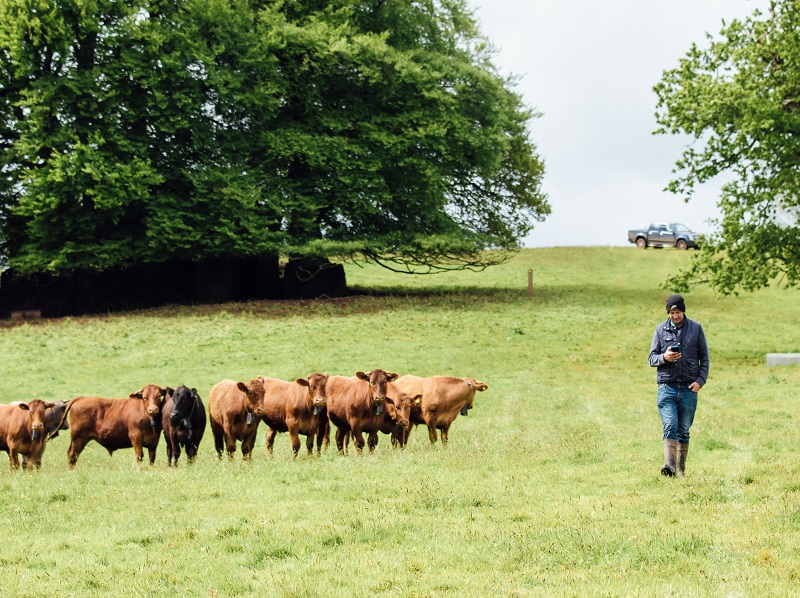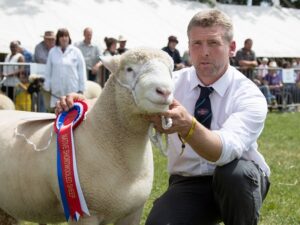New agri-technology is arguably centred around bright ideas – but when it comes to turning those ideas into reality then having the right contacts is key.
And the Agri-EPI Centre’s Midlands hub is proof of that, having facilitated dozens of cutting-edge projects since it opened three years ago.
“We help people to get things done,” explains hub operations manager, Les Hurdiss. “My job is matchmaking companies and enabling development of practical, forward-thinking agricultural technology.”
The Midlands hub is located at Harper Adams University, meaning tenants have direct links to local farms, university researchers and – through Agri-EPI itself – assistance in securing commercial or grant funding.
Comprising 10,000sq ft of workshop space and 6,000sq ft of officing and meeting rooms, it offers flexible solutions for tenants, from one-hour conference slots to full-time premises.
Inspiring places
“Our aim is to inform, inspire and innovate,” says Mr Hurdiss. This involves five steps: Identifying farmers’ challenges, finding firms with ideas to solve those challenges, giving access to university faculties to prove the concept, securing funding, and facilitating partnerships with farmers or other businesses to get it off the ground.
The networking element is therefore key. “Sometimes people get as much out of chatting over a cup of coffee as they do spending hours in research.
“The hub is a great opportunity for early and mid-stage agri-tech companies to come to one place where they have all the facilities and opportunities to meet like-minded people, farmers and academics to bring their ideas to fruition.”
So what kind of innovations are existing tenants working on? The technology ranges from hydroponic growing systems to autonomous crop management, drones to livestock boluses, and waste management to insect protein. And there have been some notable successes, says Mr Hurdiss.
“We work with DIT to bring companies into Shropshire as a landing pad. When UPL (an Indian company) came to the site just over a year ago, they liked it so much they bought a 65-acre research farm down the road.”
Not only has that created new jobs in the area, but MagGrow – which is developing magnetic ultra-fine spraying technology with Agri-EPI – is hoping to hold field trials at the UPL site next year. “The Midlands hub is real ecosystem with opportunities across the whole farmed sector.”
NoFence
Synne Foss Budal, general manager at Norwegian firm NoFence, has been renting office and warehouse space at the hub since April, making it the 10-year old company’s first overseas base.
“When we arrived we had 25 customers in the UK, now we have 140,” she says. “The real value comes from networking; getting to meet the right people, including Government policy makers.”
NoFence makes virtual livestock fencing; animals wear a GPS-connected collar which emits a sound when they get close to the pre-set boundary. “Instead of using their eyes to see the fence they learn to use their ears,” says Mrs Budal.
The benefit is that no physical fencing is required, meaning stock can graze conservation areas without new infrastructure. And farmers can rotationally graze paddocks without needing electric fencing; they simply input the new boundary on their phone and GPS does the rest.
All of this helps to improve grazing practices without disturbing the soil; a win-win for the environment, adds Mrs Budal. “We want to be part of making agriculture greener.”
Earth Rover
Earth Rover has been renting office and workshop space at the hub since 2020. “It’s a great address to have as a start-up; it puts you on the agri-tech map,” says the firm’s David Whitewood. Earth Rover is developing a robotic broccoli harvester, and is also pursuing grant funding to create a smart weeder using concentrated light imaging.
“Being part of the Agri-EPI community is very useful; we share ideas about industry requirements. The farm facilities at the hub are amazing and there’s a good support network among the other start-ups. There’s a lot of cross-fertilisation, which is what we need.”
- For further information, visit agri-epicentre.com.





